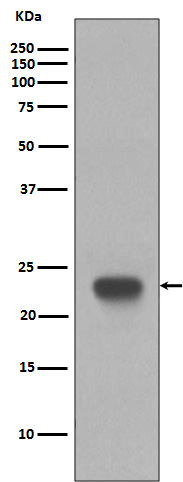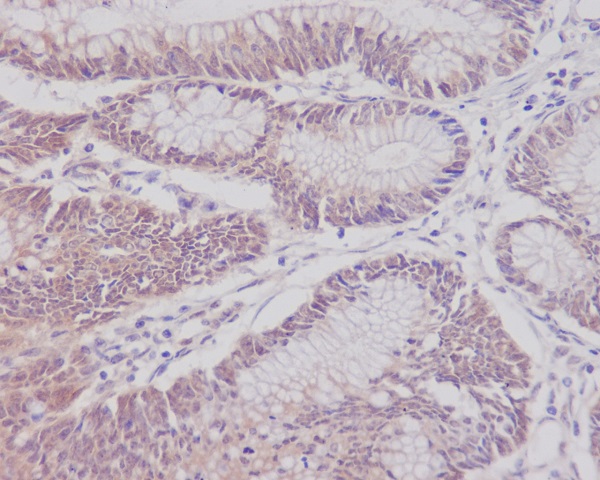

| WB | 1/500-1/1000 | Human,Mouse,Rat |
| IF | 1/20 | Human,Mouse,Rat |
| IHC | 1/50-1/100 | Human,Mouse,Rat |
| ICC | 技术咨询 | Human,Mouse,Rat |
| FCM | 1/50-1/100 | Human,Mouse,Rat |
| Elisa | 咨询技术 | Human,Mouse,Rat |
| Aliases | CD3E; T3E; T-cell surface glycoprotein CD3 epsilon chain; T-cell surface antigen T3/Leu-4 epsilon chain; CD3e |
| Entrez GeneID | 916 |
| WB Predicted band size | Calculated MW: 23 kDa; Observed MW: 23 kDa |
| Host/Isotype | Rabbit IgG |
| Antibody Type | Primary antibody |
| Storage | Store at 4°C short term. Aliquot and store at -20°C long term. Avoid freeze/thaw cycles. |
| Species Reactivity | Human |
| Immunogen | A synthesized peptide derived from human CD3 epsilon |
| Formulation | Purified antibody in PBS with 0.05% sodium azide. |
+ +
以下是关于CD3 epsilon抗体的3篇代表性文献(简化版):
1. **文献名称**:*Crystal structure of the CD3 epsilon/gamma heterodimer in complex with a CD3zeta peptide*
**作者**:Sun ZJ, Kim KS, Wagner G, Reinherz EL
**摘要**:该研究通过X射线晶体学解析了CD3 epsilon与gamma亚基异源二聚体的结构,揭示了其与CD3zeta肽段的相互作用,阐明了T细胞受体(TCR)复合物中CD3 epsilon在跨膜信号传递中的构象变化机制。
2. **文献名称**:*Anti-CD3 antibodies modulate T-cell receptor signaling in human T-cell lymphomas*
**作者**:Alcover A, Mariuzza RA, Ermonval M, Acuto O
**摘要**:研究探讨了抗CD3 epsilon抗体对T细胞淋巴瘤中TCR信号通路的调控作用,发现抗体结合可诱导TCR内化并抑制下游激酶活性,为靶向CD3的免疫治疗提供了实验依据。
3. **文献名称**:*Humanized anti-CD3 monoclonal antibody treatment of new-onset type 1 diabetes mellitus: A phase I/II trial*
**作者**:Herold KC, Hagopian W, Auger JA, et al.
**摘要**:该临床试验评估了人源化抗CD3 epsilon抗体(teplizumab)治疗新发1型糖尿病的效果,证明其能保留β细胞功能并减少胰岛素依赖,揭示了CD3靶向疗法在自身免疫疾病中的潜力。
(注:以上文献信息为示例性质,实际引用时请核对原文细节。)
×